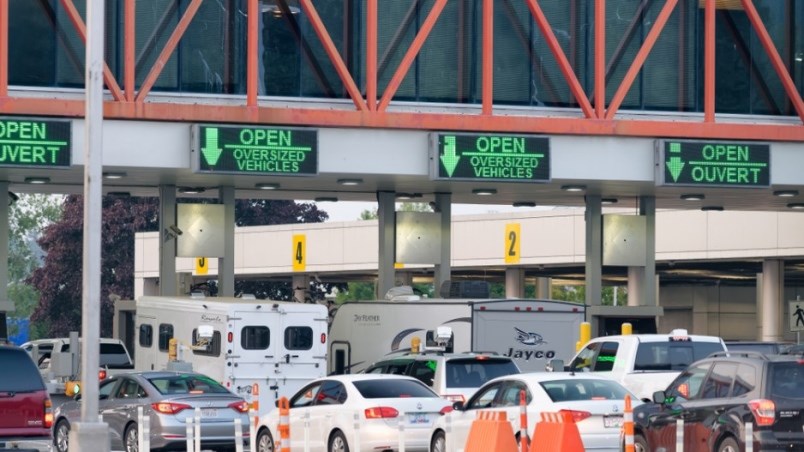The B.C. Court of Appeal has overturned two criminal convictions against a B.C. resident accused of importing 14.8 kilograms of methamphetamine with a street value of $1.5 million.
Rajkumar Subramaniam allegedly imported the drugs at the Pacific Highway U.S. border crossing on July 1, 2014. He was convicted of one count of importing drugs and one count of drug possession for the purpose of trafficking and sentenced to eight years in prison in B.C. Supreme Court on Oct. 21, 2020.
With the assistance of lawyer Eric Gottardi QC of Peck and Company Barristers, Subramaniam successfully appealed the conviction on grounds trial judge Justice Anthony Saunders erred in his instructions to the jury.
Justices Patrice Abrioux, Harvey Groberman and Gregory Fitch agreed with Subramaniam’s position and on April 19 issued their ruling, which calls for a new trial on both counts of the indictment.
Gottardi told Glacier Media Subramaniam is released on bail as he is “clearly not a flight risk nor a threat to the community in any way.”
Gottardi added the trial judge’s error was “serious.”
The Crown brought the case before the courts after Canadian border guards claimed to find 33 packages of meth in a hidden compartment of Subramaniam’s vehicle, which he had owned for a year at the time.
At the trial, both the Crown and the defence agreed that the key issue was whether Subramaniam knew of the secret compartment and that it contained the meth.
In closing submissions, the defence argued Subramaniam had unwittingly trafficked meth. The defence theory was that the real individuals involved in the drug scheme were the appellant’s brother and two associates; this despite the compartment’s locking system being linked to a mobile account belonging to Subramaniam.
“This was a circumstantial evidence case, including [Subramaniam’s] exculpatory testimony and evidence in the Crown case, that there was a locked box in the car which someone other than the appellant may have had control,” explained Justice Abrioux.
At issue in the appeal was whether the jury was able to correctly decipher facts based on the judge’s instructions.
The Crown acknowledged the instructions “leaves something to be desired” but contended upon appeal the whole of the instructions should not reverse the convictions.
Subramaniam specifically argued on appeal it was improper for the judge to leave “an additional, speculative option of wilful blindness to the jury,” the ruling notes.
But, “wilful blindness was properly left with the jury and the instructions on wilful blindness did not, standing alone, warrant intervention,” stated Justice Abrioux.
However, it was how the jury was to interpret wilful blindness as a fact that became central to the appeal.
“The judge’s instructions, however, viewed cumulatively were confusing, and it could not be said that the jury was left with no misapprehension as to the correct burden and standard of proof to apply.
“The instructions on the fact-finding process, in particular, may have left the jury in a position to convict the appellant on a standard lower than proof beyond a reasonable doubt,” concluded Justice Abrioux.
A new trial date has not been set and Subramaniam is presumed innocent unless proven guilty.



